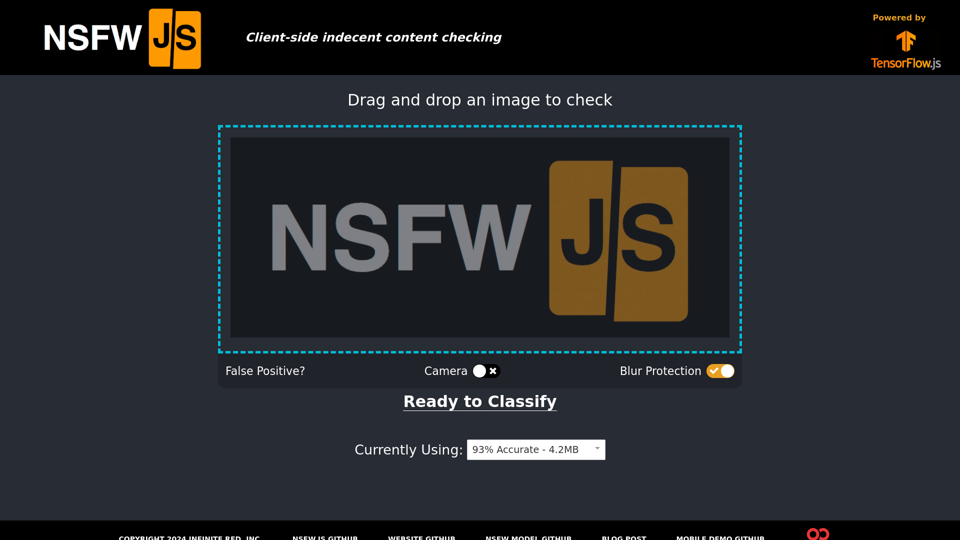Product Features of NSFW JS
Overview
NSFW JS is a client-side JavaScript application that enables users to check for indecent content in images. It is powered by cutting-edge technology for content filtering and NSFW detection.
Main Purpose and Target User Group
The main purpose of NSFW JS is to provide a user-friendly tool for detecting inappropriate content in images. It is designed for developers, content moderators, and anyone who needs to ensure that their content is safe for all audiences.
Function Details and Operations
- Users can simply drag and drop an image into the application to check for indecent content.
- The application provides protection against false positives and offers blur protection.
- NSFW JS is equipped with advanced algorithms that classify images with 93% accuracy while maintaining a compact file size of 4.2MB.
User Benefits
- Easy-to-use interface for quick and efficient content checking.
- High accuracy in detecting NSFW content.
- Protection against false positives and blur protection for added security.
- Compact file size for seamless integration and usage.
Compatibility and Integration
NSFW JS is compatible with a wide range of web browsers and can be easily integrated into existing web applications. It can be seamlessly incorporated into various projects to enhance content moderation capabilities.
Customer Feedback and Case Studies
Users have praised NSFW JS for its user-friendly interface and high accuracy in detecting inappropriate content. Many have reported significant improvements in content moderation workflows and increased efficiency in ensuring safe content delivery to audiences.
Access and Activation Method
Users can access NSFW JS through its official website at https://nsfwjs.com/. The application can be activated by enabling JavaScript to run the app smoothly. Additionally, users can explore the NSFW.js Github repository for more information and updates on the application.
